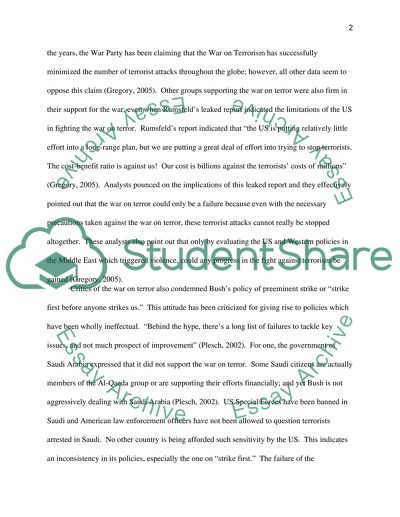Cite this document
(“The United States and the floundering war on terror Essay”, n.d.)
Retrieved from https://studentshare.org/military/1412902-the-united-states-and-the-floundering-war-on-terror
Retrieved from https://studentshare.org/military/1412902-the-united-states-and-the-floundering-war-on-terror
(The United States and the Floundering War on Terror Essay)
https://studentshare.org/military/1412902-the-united-states-and-the-floundering-war-on-terror.
https://studentshare.org/military/1412902-the-united-states-and-the-floundering-war-on-terror.
“The United States and the Floundering War on Terror Essay”, n.d. https://studentshare.org/military/1412902-the-united-states-and-the-floundering-war-on-terror.


